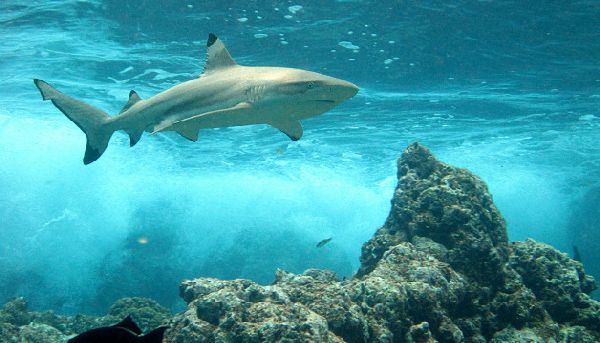The connection between the declining population of many species and humans cannot be denied. We’ve significantly contributed to the near extinction of land and marine creatures owing to deforestation, food, poaching and global warming. Now, international marine scientists have revealed that the number of reef sharks inhabiting the waters around populated islands is plummeting. According to Marc Nadon of the University of Hawaii, reef shark numbers have declined significantly around populated islands by over 90 percent compared to those around untouched reefs.

The marine scientists conducted studies of 46 Pacific islands in the United States, combined them with human population data, satellite records, reef size and habitat complexity. The numbers were arrived at using towed dive surveys where scuba divers take note of shark sightings, while they’re towed behind in small boats. It’s believed that such a method is more effective when conducting large area readings of reef fish.
Nadon said that the numbers of the reef sharks around areas like the Mariana Archipelago, the main Hawaiian Islands and the America Samoa were very few. According to Julia Baum of the University of Victoria in Canada, the low numbers are very likely due to commercial or recreational fishing and targeting the sharks for their fins.
Baum says that while the fins of the reef sharks aren’t as in demand as others, this shift to hunting them is probably because the population of other sharks has declined.
The study should be cause for concern as reef sharks are at the peak of the predator list in coral reefs. As such, their survival is extremely necessary if the marine world is to maintain a balance. As it is, large mammals like whales and sharks are consistently hunted all over the globe despite moratoriums. Similar to what’s going on in land where top predators are being hunted, the same trend takes place underwater, tipping nature’s delicate balance and posing a question of what will happen to humankind once a majority of species are lost.
Via: Cnn




